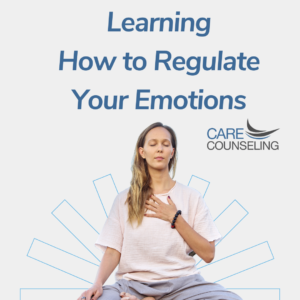Learning How to Regulate Your Emotions
 Emotions are an integral part of the human experience, influencing our thoughts, behaviors, and overall well-being. Learning how to regulate your emotions is a valuable skill that can lead to increased self-awareness, better relationships, and improved mental health.
Emotions are an integral part of the human experience, influencing our thoughts, behaviors, and overall well-being. Learning how to regulate your emotions is a valuable skill that can lead to increased self-awareness, better relationships, and improved mental health.
The Significance of Emotional Regulation
Emotional regulation refers to the ability to manage and modulate your emotional responses effectively. It doesn’t mean suppressing or denying your emotions; instead, it involves recognizing, understanding, and responding to them in a healthy and constructive manner. Here’s why emotional regulation is so vital:
- Improved Mental Health: Effective emotional regulation can reduce symptoms of anxiety, depression, and other mental health challenges. It helps you cope with life’s stressors and challenges more effectively.
- Enhanced Relationships: Understanding and managing your emotions can lead to healthier and more satisfying relationships. You can communicate your feelings more clearly and empathetically and navigate conflicts with greater ease.
- Better Decision-Making: Emotional regulation allows you to think more clearly and make rational decisions, as you are less likely to be overwhelmed by intense emotions in the heat of the moment.
- Increased Resilience: Developing emotional regulation skills can enhance your resilience, helping you bounce back from setbacks and adversity.
Strategies for Learning Emotional Regulation
- Identify Your Emotions: Start by becoming aware of what you’re feeling. Name your emotions as specifically as possible. Instead of saying “I’m upset,” try saying “I’m feeling frustrated because…”
- Accept Your Emotions: It’s crucial to acknowledge that all emotions, even the uncomfortable ones, are valid. Emotions are signals from your inner self, and they serve a purpose.
- Practice Mindfulness: Mindfulness involves being fully present in the moment without judgment. It helps you observe your emotions without reacting impulsively. Meditation and deep breathing exercises are excellent mindfulness practices.
- Develop Emotional Awareness: Pay attention to the physical sensations that accompany your emotions. For example, anxiety might be associated with a racing heart or tense muscles. Recognizing these physical cues can help you identify your emotions more effectively.
- Pause and Reflect: Before reacting to a strong emotion, take a moment to pause and reflect. Ask yourself why you’re feeling this way and consider alternative perspectives.
- Journaling: Writing down your thoughts and feelings in a journal can be a powerful tool for emotional regulation. It allows you to gain insights into recurring patterns and triggers.
- Engage in Self-Care: Prioritize self-care practices such as exercise, a balanced diet, adequate sleep, and spending time doing activities you enjoy. Physical well-being has a significant impact on emotional regulation.
- Seek Support: Don’t hesitate to reach out to friends, family, or a therapist when you need support in managing your emotions. Talking to someone you trust can provide valuable insights and emotional relief.
- Develop Healthy Coping Mechanisms: Instead of turning to unhealthy coping mechanisms like excessive alcohol or emotional eating, cultivate healthier ways to cope with stress and challenging emotions. This might include practicing relaxation techniques, engaging in hobbies, or seeking professional help.
- Set Boundaries: Learn to set and maintain healthy boundaries in your relationships. Setting boundaries is a form of emotional regulation that helps protect your well-being.
The Journey Toward Emotional Mastery
Emotional regulation is a skill that takes time to develop and refine. It’s a journey of self-discovery and self-improvement. Here are some key principles to remember on this journey:
- Practice Makes Progress: You may not achieve perfect emotional regulation overnight. It’s about making progress, not striving for perfection.
- Self-Compassion: Be kind and compassionate with yourself when you experience setbacks or difficulties in managing your emotions. Self-compassion is a crucial aspect of emotional regulation.
- Continuous Learning: Keep learning about emotions and how they affect you. The more you understand yourself, the better equipped you’ll be to regulate your emotions.
- Seek Professional Help: If you find that your emotions are overwhelming and impacting your daily life, consider seeking the help of a therapist or counselor. They can provide guidance and tools to assist you in your emotional regulation journey.
Learning how to regulate your emotions is a valuable skill that can transform your life. It empowers you to navigate the ups and downs of life with greater resilience, forge healthier relationships, and prioritize your mental well-being. Embrace the process of self-discovery and emotional growth, and remember that with patience, practice, and support, you can master the art of emotional regulation.



























